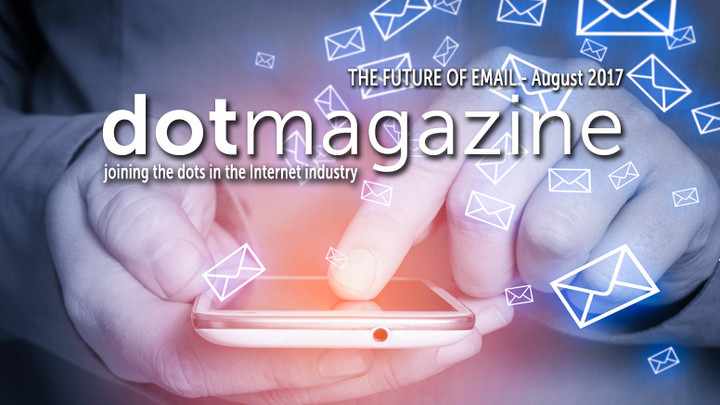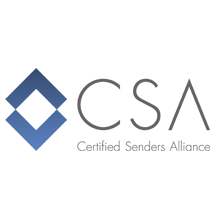doteditorial August 2017
“The Future of Email”, the August 2017 issue of dotmagazine, explores where this essential medium is heading and what its potential is, focusing on email marketing and how to make sure that relevant marketing messages truly reach target customers, and how to beat the email bad guys.

© natasaadzic | istockphoto.com
Shortly before a trip, your smartphone shows the emails with flight and hotel confirmations, an app brings your attention to an email voucher before it expires: The email of the future is perfectly tailored to the recipient and reaches the user at the right time, in the right place, and in the form that the user wants to consume it.
“The Future of Email”, the latest issue of eco’s dotmagazine, explores where this essential medium is heading and what its potential is, with a strong focus on email marketing and how to make sure that relevant marketing messages truly reach target customers. Those who build future behavior patterns and new features into their planning today will still be sending relevant emails tomorrow that will arrive in recipients’ inboxes.
New challenges are coming from all directions for email marketers, for email service providers and Internet service providers, and not least for users themselves. These challenges take many forms – the new data protection regulations in Europe will lead to steep fines for marketers that continue to disregard the law, authentication of senders is becoming more and more important to stem the flow of spam and phishing attacks, and the sheer number of emails being sent means that marketers have to work even harder to be relevant to the recipient, and to target their mailings more effectively.
Phishing attacks are an issue throughout the email value chain, from the marketer whose emails are discarded due to a lack of user trust, to the ESP’s need to get the attacker off their network, to the ISP’s responsibility to prevent damage to their customers, the users. “It is like a war out there... We have guys in the trenches, monitoring senders, looking at behavior... Trying to look at the smallest signals to say, OK, this is really a bad guy, or this might be a good guy,” according to Marcel Becker from Oath. And defense is all about constant improvements in security and detection: Terry Zink, Program Manager for the Microsoft Corporation, explains that if a phisher is on your network, “you definitely want to kick them off, but also learn from how they got on in the first place, and shut those holes down”.
The trend towards mobile email can have an impact on the reputation of the sender – especially if a receiver swipes an email into the spam folder. Sven Krohlas, and Christian Schäfer-Lorenz from 1&1 recommend, for example, that enabling recipients to unsubscribe from a newsletter with a single click is essential to protect brand reputation. Using SPF and DKIM, etc. to ensure verifiable senders is just as important as professional management of returns and bounces. Managing all of these, and the campaign analytics as a whole, is a big challenge for marketers, according to Paul Midgin from 250ok.
But some things won’t change. Trust is, and will remain, the key to successful email marketing. Consent is fundamental, as both eco’s Rosa Hafezi and Mathias Ullrich from Optivo advise in their recommendations on optimizing marketing emails to help them get delivered. According to Mathias Ullrich, being blacklisted for trust issues is bad news for the sender’s reputation, and can lead to emails not being delivered – and for marketers, “deliverability is revenue”. Wouter van den Brink gives insight into a secure electronic email system to take the place of physical “registered mail” for important and confidential documents, in accordance with the EU’s eIDAS regulation. Finally, as Marcel Becker from Oath commented at this year’s CSA Summit, “Trust agencies like the Certified Senders Alliance (CSA) are becoming increasingly important for ISPs and ESPs, in order to gain the trust of the end customers.”
What is the future of email? Vittorio Bertola from Open-Xchange tells us that email is not going away: “Email is here to stay for the most formal online communication mechanism. The important stuff.”
Smart apps that read the recipients’ emails offer a chance for the email marketing of the future. Offering a clear overview, they show the reader all important information, at the time when the reader needs it most – the electronic personal assistant of the future.
So, no, the prognoses that suggest email is dead are way off the mark. But there is still work to be done to make email as secure, safe and relevant as our most commonly used communication tool needs to be.
Julia Janssen-Holldiek became part of the CSA team in 2014 and Director in 2017, and is passionate about creating and enabling quality standards for commercial emailing. Prior to the CSA she worked for several years in Marketing and Sales at Dell. Julia studied business administration at the University of Cologne and the Universidad Torcuato di Tella, Buenos Aires.



